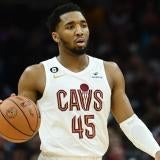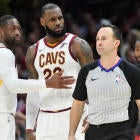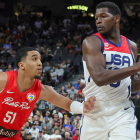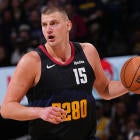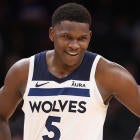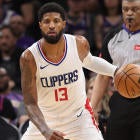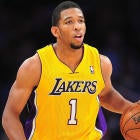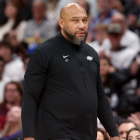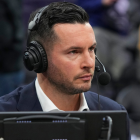NBA players and referees have reached a point in their relationship where both sides know something needs to be fixed. The two sides will reportedly meet in Los Angeles to discuss their problems and try to reach a solution. It's something that many players want addressed and NBPA executive director Michele Roberts told USA Today's Sam Amick it's what she hears about the most when talking to players.
"If I (talk to) my players and ask about eight things (that bother them), the No. 1 issue on their minds is officiating. And it's only gotten worse over the years, (and) probably now is about as hot as it has been. So I think (the All-Star meeting will be) great. I think now it's about to surface. You guys are writing about it. No one can simply assume that it's just a bunch of bad eggs who are pissed about bad calls. It's a real problem that I'm glad we're addressing."
Although the natural assumption is that the frustration growing among players has to do with the accuracy of the calls, that isn't what has led to the rising tensions, according to the report. It has more to do with how players and refs are interacting with each other. Roberts indicated as much in her comments.
"I just really think that to the extent that there are officials who adopt that absolute 'I'm not going to comment (with players during game action)' rule, they should reconsider that....It's not necessarily that he's going to say, 'Oh, you're right. Let me rescind that call.' But to not be able to engage at all is a mistake."
The NBRA confirmed that the problem is not in accuracy of calls, but rather in the interaction that is taking place between refs and players.
"I don't believe it's an issue with officiating accuracy. Our accuracy numbers are very consistent with what they've been historically, at very high levels. We're looking at high 90s in terms of calls made, averaging around 90 percent in total, and this is all kind of fact-based stuff. There is not any kind of demonstrable or measurable decline in officiating performance, from that perspective.
"Players are intense and frustrated, and that's to be expected. I think the referees expect a certain amount of it, but I think there's just been a decline in civility, a decline in respect, an increase in aggression.
It's obvious the disconnect has to do with the communication. Techs are at a fairly normal pace this season, and according to Amick, they were actually on pace to be lower than the average this season before Monday's kerfuffle at Staples Center, but that isn't why ref-player relations have been in the news so much.
The catalyst for all of this? The ejections of stars like LeBron James, Anthony Davis and Kevin Durant. It would be one thing if players with earned reputations were earning ejections, but James and Davis were never ejected before this season. Durant already has three this season. These are noticeable players and names having issues with the refs. That's going to gain traction nationally.
Hopefully this traction will lead to a solution from both sides. Both parties recognize there is a problem and the statistics show that it doesn't have to do with the accuracy of the calls. If players and refs can figure out how to better communicate with each other, then maybe some of these public blowups will lessen. There will never be complete absence of tension, but a healthy working environment is necessary for the good of the NBA.











